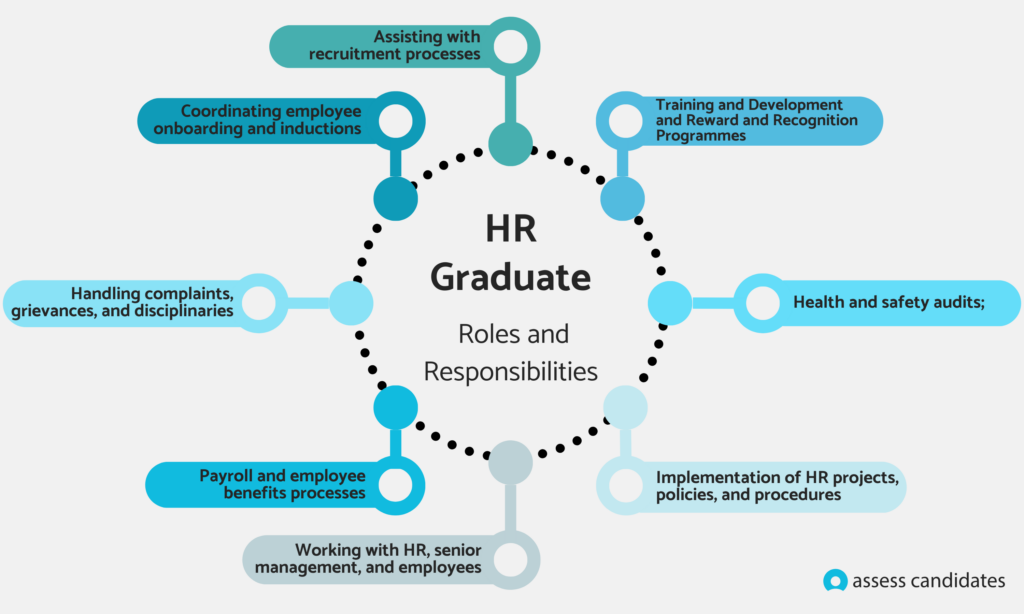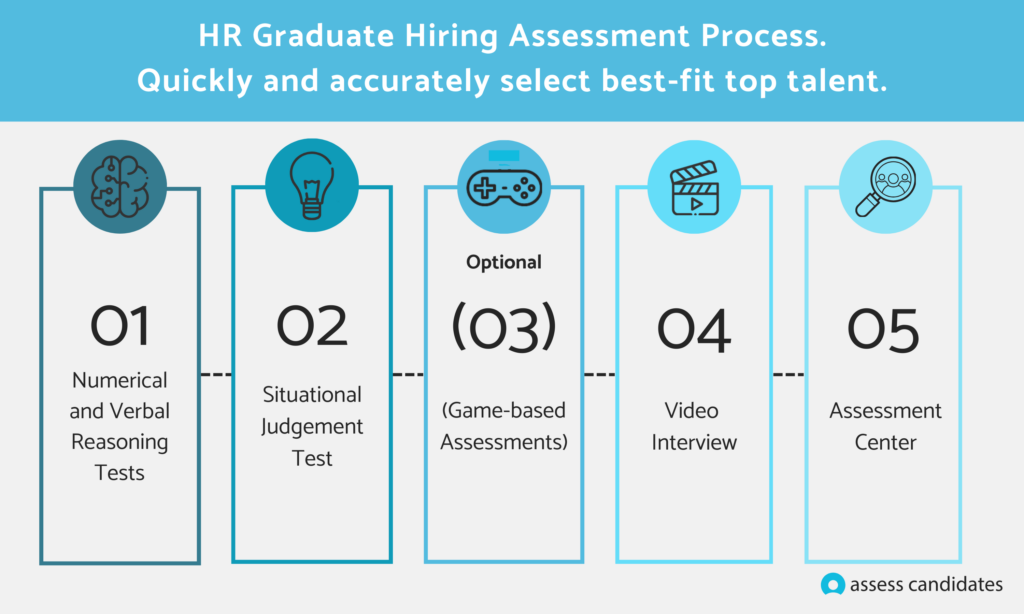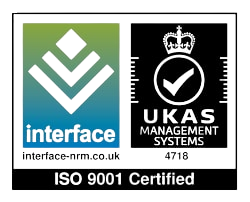Hiring for Human Resources Graduates: Why you should adopt this ideal recruitment assessment process
As professionals in talent acquisition, you know that Human Resources (HR) is taking an ever more active role in organizations across every industry, from financial services to healthcare, manufacturing, technology, and retail, to ensure safe working practices and that overall goals of the company and people are fulfilled. HR professionals can make real, positive impacts on businesses and on individual employees, that is why in recent years a HR career has become a popular choice amongst graduates, regardless of their discipline.
In this short guide, we explore step-by-step the ideal recruitment process for hiring a HR Graduate and recommend which assessments will ensure you select the best-fit top talent for your HR role.
Contents:
- What is a HR Graduate and what do they do?
- What is the ideal assessment process to hire the top HR Graduates?
- Concluding remarks
1. What is a HR Graduate and what do they do?
What is a HR Graduate?
A HR Graduate is a trainee role, often part of an entry-level graduate programme run by many public and private organizations. Many programmes involve rotational placements to expose graduates to the different areas of HR and the different challenges each face, including:
- Recruitment
- Employee relations
- Learning and development
- Compensation and benefits
- Health and safety
- HR policies and procedures
HR Graduates will be involved in all aspects of a business, therefore, in their recruitment, it is essential that you select and hire candidates who are well-rounded and have the necessary skills to advance within HR.
What would be the main duties and responsibilities of a HR Graduate for my organization?
HR Graduates will be expected to assist HR professionals in overseeing the effective management of your organization’s employees and their development, whilst learning and gaining varied practical experience in the many areas of HR.
Common responsibilities for a HR Graduate include:
- Assisting with recruitment processes such as candidate sourcing, screenings, interviews and offers
- Coordinating employee onboarding and inductions
- Developing training and development and recognition and reward programmes
- Handling complaints, grievances, and disciplinaries
- Health and safety audits
- Developing and implementing effective payroll and employee benefits processes
- Production and implementation of HR projects, policies, and procedures
- Working closely with the HR team, senior management and individual employees

What skills are needed for a HR Graduate to succeed in my organization?
In order to succeed within HR, there are a variety of interpersonal and soft skills which are important and, therefore, we recommend assessing during your HR Graduate hiring and assessment process. These are:
- Teamwork skills
- Verbal and written communication
- Listening skills
- Problem-solving skills
- Cultural awareness and empathy
- Attention to detail
- Organizational and administrative skills
- Numerical skills
- Flexibility
- Time management
- Commercial awareness
Create a hiring assessment process for your HR Graduate role. Fast. Hire For Free
2. What is the ideal assessment process to hire the top HR Graduates?
When hiring for HR Graduates, it is essential that you implement an assessment process that tests candidates against the wide range of skills and attributes required for HR. CVs and cover letters won’t cover all bases. Instead, we recommend including the following assessments in your HR Graduate recruitment plan to ensure you select the right candidates first time.

1. Pre-employment Numerical and Verbal Reasoning Tests
At the initial sifting stage of recruiting a HR Graduate, we recommend asking candidates to take a short pre-employment numerical reasoning assessment. HR Graduates in the workplace may be required to interpret data and statistics when assisting with payroll, compensation, benefits, and onboarding. A numerical test will quickly and accurately show you which candidates possess the desired numerical aptitude for your role.
It is also best practice to combine this numerical assessment with a pre-employment verbal reasoning assessment. The primary duty of HR Graduates is to support HR professionals in overseeing the management of people. A verbal reasoning test is designed to evaluate the essential skills – interpersonal, communication, and problem-solving skills – required for this primary duty.
Did you know that combining aptitude tests together at the initial stage of HR Graduate assessment can reduce your candidate pool by 50%? This is particularly beneficial for graduate programme hiring to quickly sift through the high volume of applications.
2. A Pre-employment Situational Judgement Test
At this initial sifting stage or the stage after, we also advise including a pre-employment situational judgement test. This assessment requires candidates to rank different possible actions they might take in certain work-based scenarios to accurately predict their core competencies and how they might perform in the role. This insight compliments what you have already learnt about candidates’ technical skills from the aptitude tests and helps to build a well-rounded candidate picture.
What’s more, the HR Graduate situational judgement test can be customized to reflect work-based scenarios and challenges commonly faced in HR roles or the competency framework of your organization. It can also be tailored to assess the specific competencies required for HR Graduate roles.
What competencies should I assess in my HR Graduate pre-hire situational judgement test?
HR Graduate competencies you should assess include:
- Teamwork
- Communication
- Empathy
- Problem-solving
- Planning and organizing
Keep in mind that your situational judgement test should also help candidates find out more about your company and the specific challenges they might face in HR.
3. Game-based Assessments
Has your company experienced a large amount of application withdrawals during past recruitment campaigns? If so, it would be a good idea to consider adding one or a couple of pre-employment game-based assessments to supplement and enhance your HR Graduate assessment process. We recommend:
- The i-EQ™ Game: measures emotional intelligence, empathy, and sociability
- Mathsbubbles™: measures mental arithmetic
- The MTA-Tray™ Game: measures organizational skills, ability to prioritize, and attention to detail
Why should I use game-based assessments in my HR Graduate hiring process?
As HR professionals, you know that gamification within HR has increasingly become a popular engagement tool, and using games within hiring processes is no different. Non-timed game-based assessments for recruitment help sustain candidate engagement throughout the process as they offer a modern, enjoyable, and fun way to take pre-employment tests. This can also boost your company image and reputation as dynamic and innovative, particularly appealing to the graduate population.
4. A Pre-hire Video Interview
For the next stage in hiring your HR Graduate, we suggest asking your shortlisted candidates to answer a series of pre-recorded questions during a timed video interview. Here, you will be able to find out more about candidates, their skills, competencies, and experience to determine whether they are suitable for the HR role and your company.
As a recruiter, how should I build my HR Graduate video interview?
Typically, for a HR Graduate video interview, it is best to include 5-9 questions, which can be either competency-based and/or questions digging deeper into who they are, what motivates them, why they want to work for your company etc.
For example, HR Graduate video interview questions could range from ‘Tell me about yourself?’ to ‘How should you ensure equality and diversity policies are followed in the workplace?’ or ‘Tell me about a time when you were not satisfied with your performance.’
5. An Assessment Center
The final assessment and selection stage for your HR Graduate role is to invite top candidates to a virtual or in-person assessment center day.
How should I set up an assessment center day for my HR Graduate role?
The HR Graduate assessment day should present candidates with a variety of different exercises which they must partake in, such as a group exercise, presentation exercise, and behavioural or case-study interview. Here, candidates will be able to showcase their skills and natural strengths.
These exercises will allow you, as assessors, to observe how well candidates communicate, work within a team, analyze information, and manage their time, all key competencies required for HR roles. Once a complete, rounded picture has been built for each candidate, you will be able to make informed hiring decisions to select those candidates who are best-fit for your HR role, team, and company culture.
Keep in mind that assessment centers are designed to give you the clearest possible insight into final candidates, however, they should equally give candidates insight into the type of roles they might be involved in post-employment as well as your company culture and values.
3. Concluding remarks
By incorporating these 5 assessment stages into your HR Graduate recruitment process, you will firstly be able to quickly and accurately sift through large volumes of applications, and secondly, gain comprehensive insight into candidates’ skills, competencies, and overall fit for the role and your organization. This type of insight is invaluable to enable you to shortlist top talent and, ultimately, hire the right HR Graduate first time.
Interested in getting the latest insights and advice on candidate assessment? Sign up with your email below to get started.
